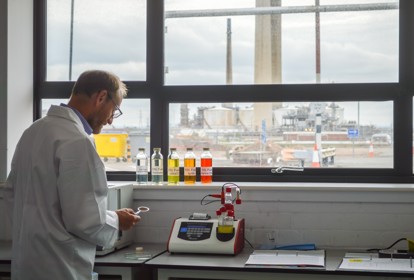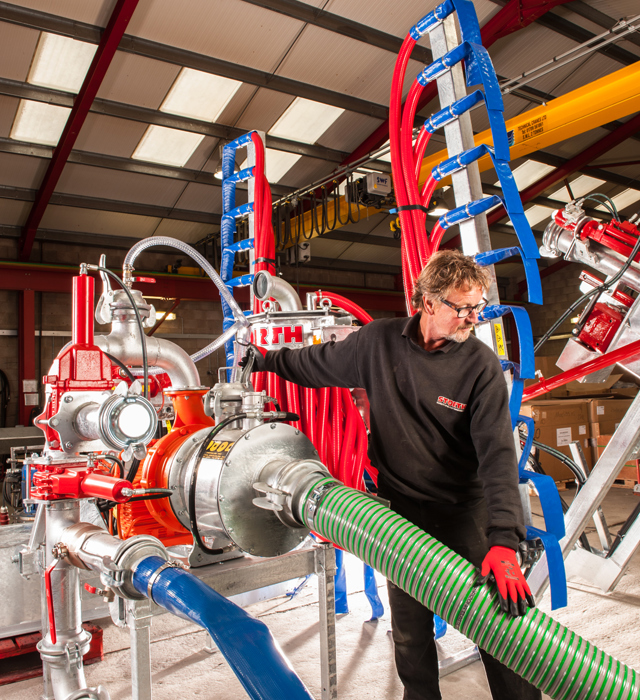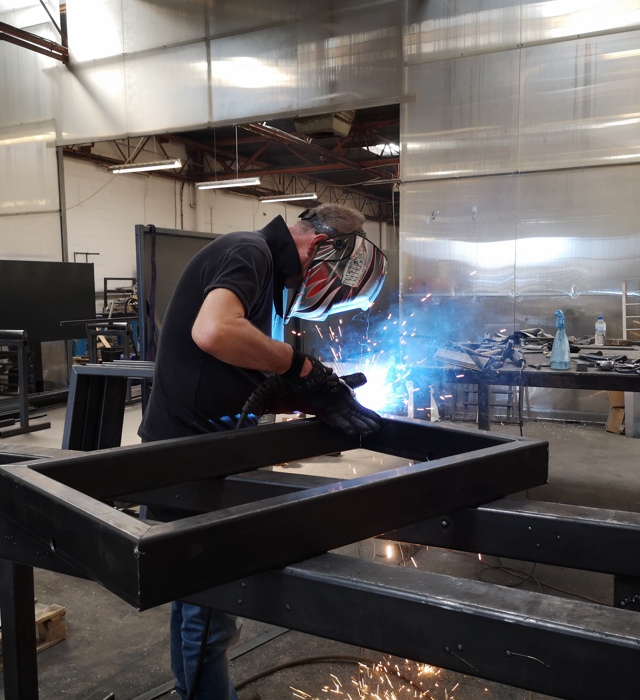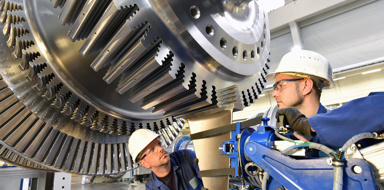
ESL Fuels, based in Ellesmere Port, Cheshire, have processing and blending operations around the UK, supplying the road, heating and marine markets.
As demand for fossil fuels reduces in favour of more sustainable products, the business is using technology to boost the efficiency of their operations, scale the business and launch new projects.
Made Smarter has supported two projects. The first is a bespoke ERP system integrating business operations and its supply chain which will improve efficiency by automating processes and provide new, improved visibility. The second uses sensors to capture throughput and quality data from its innovative Molexis fuel manufacturing process, which will increase its productivity and facilitate product development.
Richard Donovan, Finance Director & General Manager, said: “To continue on our trajectory of high growth, we recognised, amongst other things, the need to increase our investment in information systems and to expedite making improvements to our manufacturing technology and processes.
“Made Smarter came along at the perfect time to help accelerate us along our digital journey.”
ESL Fuels Case StudyIncorporated in 2000 by Stephen Whittaker, ESL was the first commercial biodiesel producer in the UK. It built on its success with road fuel, innovating with new grades of heating and marine fuels including its Ultra 35 heating oil, which has gone on to sell two billion litres.
For many years, the company operated a simple operating model, supplying from a single location and selling via a single distributor. However, when sales plateaued and then began to decline, ESL recognised a need to adopt a different strategy and reposition itself in the market.
In 2018, ESL made significant changes to the business, exiting certain relationships and effectively reverted to being a startup. Its aim was to cement and promote its position as the leading expert and supplier of innovative liquid fuels.
A critical part of the approach was focused research and development. In 2019, ESL launched its innovative Molexis technology, which enables low energy fuel processing, at a purpose-built site at Ellesmere Port.
Richard said: “Prior to 2018 our order management system was simple but fit for purpose. With effectively one site, one product, one customer, we were transactionally light and could operate with a lean team.
“Following the decision to grow our product portfolio, expand our customer base and increase the number of supply locations, the complexity naturally demanded a more sophisticated system. The transactional burden meant skilled operatives were becoming tied up in inefficient and labour-intensive tasks. Having returned to start-up territory there was a need to tightly control costs, so initially we had to make-do and find work-arounds to get by, unable to work smartly.”
ESL was also aware of the challenging way it monitored output and quality in its Molexis manufacturing process. This involved the need to take physical samples at regular intervals which was labour intensive and at risk of human error.
ESL’s bespoke ERP system will include a customer portal and a suite of modules to integrate all elements of its business operations and supply chain. This will enable vital information to be accessible and visible in one place such as orders, receipts, transfers, inventory, freight, paperwork, purchases, hedging, pricing and reporting.
“Rather than transform in one big bang, known as the waterfall method, we decided to take a modular approach, known as agile,” Richard explained. “This enables us to prioritise certain elements and access benefits earlier.
“Furthermore, as the requirements of the business change, we can more easily adjust the project plan as required. As an example, remote working during COVID prompted us to reprioritise digitalising documents and accelerated our move to a paperless environment.”
The second project has been to introduce sensors to automate monitoring in ESL’s manufacturing process. These sensors capture throughput and quality data which are captured and displayed through custom software.
The new ERP system will significantly increase ESL’s efficiency by increasing functionality and automating business processes, thereby reducing processing time, reducing human error and bringing scalability to transactional activity.
The modular approach brings flexibility as the company continues to evolve and already yields benefits such as improved reporting with more access to insightful real time information.
The technology is hosted on a secure and reliable platform to ensure that the confidentiality, integrity and availability of the data is maintained.
Richard said: “This investment is enabling ESL to scale in an efficient and highly effective manner, while providing our customers with a world class service.”
The introduction of sensors to the manufacturing process has introduced continuous monitoring of its throughput and quality, with real time information.
Improved control of the process will allow quicker and more focused research and development into technology and raw materials, as well as reducing energy use.
The automated data collection will permit the processing team to engage in higher skilled tasks, with less time monitoring and more time analysing the data produced by the system.
The growth that has been supported by the investment has created three new jobs in the past 12 months.
ESL’s investment in its ERP system and manufacturing process has created a platform for growth and helped facilitate the company’s expansion in sustainable fuels.
“In recent years the growth of the company has been in fossil fuels, which is a declining market,” Richard said. “We have now returned to the company’s origin in sustainable fuels. This means more products, more customers, more suppliers and more locations. We need to be prepared to scale and adapt quickly. This technology and Made Smarter’s support is enabling us to do that.”








